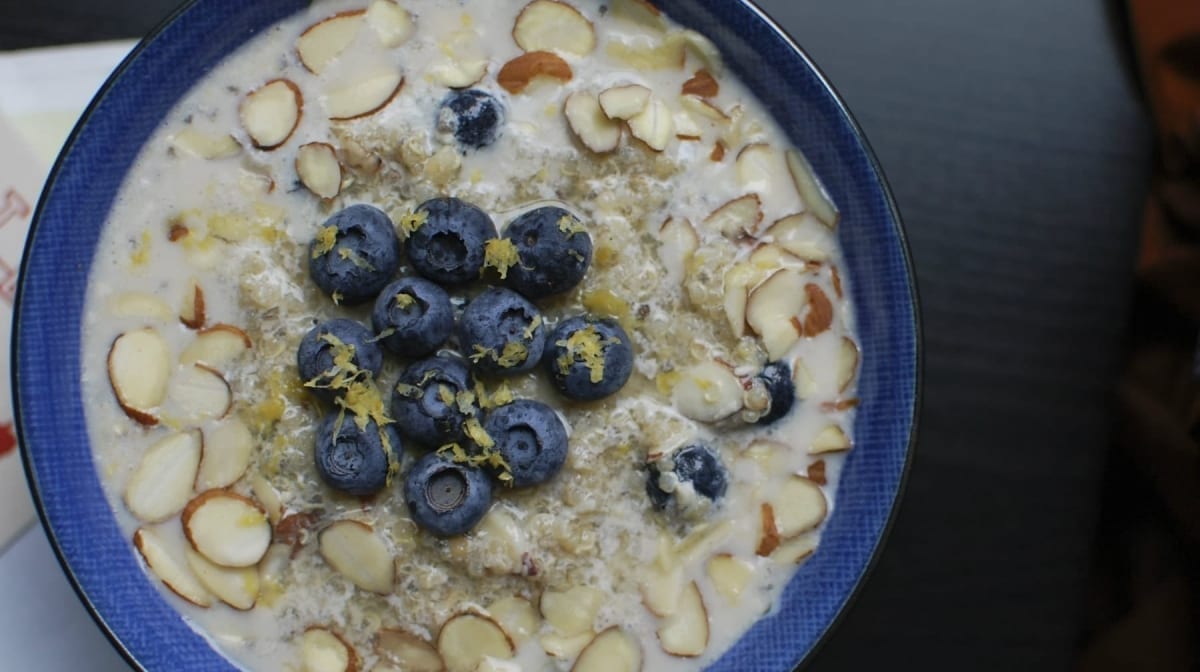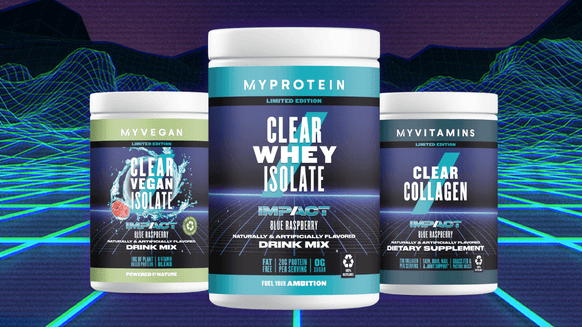What Is Inulin? | Benefits, Dosage & Side Effects

Inulin may seem like a new supplement, but it has actually been around for years and is commonly used in the food industry. Scientific literature is booming with new information about the potential benefits and many uses for inulin.
Why is inulin suddenly so popular? It’s a soluble fibre, negligible in calories, and has the potential to improve blood sugar control, help with weight loss, and improve digestion.
Let’s review the most up to date research on inulin and discuss its common uses, best sources, and ways to make the most of the benefits it offers.

What is inulin?
Inulin is a type of fibre that comes from a variety of plant sources. Fibre, which is a non-digestible carbohydrate, can occur in two different types — soluble (mixes with water) and insoluble (doesn’t mix with water), and inulin is water soluble. Soluble fibre like that from inulin makes a gel-like substance that helps to regulate and slow digestion.
Inulin belongs to a group of plant-based carbohydrates called fructans, which are characteristically made up of fructose molecules in a specific chemical structure that act as stored carbohydrate for plants. The structure of fructans also makes them travel to the gut and act as a prebiotic.1 Prebiotics help boost our digestive system by fuelling the healthy bacteria that play key roles in digestion and immunity.
Is inulin classed as a fibre?
Inulin is a fibre because it’s a plant-based carbohydrate source that can’t be broken down and digested by the body. Although it contains 1.5 calories per gram, it doesn’t impact our digestion and blood sugar like other types of carbohydrates (sugars, starches, etc.) that contain 4 calories per gram.1 Inulin is also able to be produced synthetically by scientists for use as a supplement. It can also act as a high fibre replacement for fat or sugar in packaged foods.1
Health benefits of inulin
One of the biggest challenges when trying to lose weight can be the constant feeling of hunger. Soluble fibres like inulin slow down digestion, keeping food in your stomach longer, which sends signals to your brain that you’re full and helps to decrease your appetite.1
The signals that your brain receives to feel full or hungry are controlled by hormones. In addition to its bulking effect in the stomach, inulin also works in the colon to regulate the expression of GLP-1 and ghrelin, two major components of appetite regulation.2,3 The combined impact of inulin in the stomach and colon helped study participants lose between 1-6 kg in less than 5 months of inulin supplementation.2,3
The same study showed that inulin powder supplementation led to additional weight loss by loss of fat mass.2 Specifically, inulin helped to reduce ectopic fat, which is stored in the liver and muscle tissue. The accumulation of fat in these areas can lead to many health issues, like Type 2 Diabetes, making this benefit of inulin supplementation very promising.2
Digestion in the large intestine involves over 400 kinds of bacteria. Although there’s typically a mixture of helpful and potentially harmful bacteria in our gut, eating a diet high fibre can fuel the good bacteria.1 As previously mentioned, inulin also acts as a “prebiotic”, benefitting the good bacteria by fuelling them and helping them outnumber the bad bacteria.
Soluble fibres like inulin help to slow down the digestive process and regulate the speed at which food moves through the digestive system. Over time, this can be beneficial for those with digestive issues who struggle with constipation and associated issues. 1,3
A new area of research is the link between the gut and the brain, and keeping high levels of beneficial bacteria can potentially help many other processes in the body beyond digestion.

Best sources of inulin
Although some amount of inulin is found in over 3,000 plants, the highest sources of inulin are foods like garlic, asparagus roots, Jerusalem artichokes and chicory root, which can possess up to 15-20% inulin content.1 Inulin is also present in smaller amounts in more commonly consumed foods like bananas, onions, leeks, and barley.1 These foods may contain less inulin (1-5%), but regular intake contributes to adequate fibre in your daily diet.
Adults should aim for between 25-35 grams of fibre each day, and many of us fall short of those goals, making fibre supplements common place. In addition to inulin powder supplements, there are entire brands of food products with added inulin marketed as high fibre snacks to help control appetite and lose weight.
Inulin dosage - How much inulin should I take?
When beginning any type of fibre supplement, you want to make small changes over time as to not impact your digestion too dramatically as this can lead to side effects. Before incorporating an inulin supplement, you can start by adding inulin-containing foods consistently to monitor the impact on your digestion.
If you decide you need additional soluble fibre in the form of an inulin supplement, increase the amount slowly over time. Gradually beginning with small doses between 2-3g per day for the first two weeks, followed by small increases of 1-2g per week up until a dose of around 10g per day can give your body time to adjust and establish a regular digestive pattern. While the goal for dietary fibre is higher than 10 grams per day, anyone with a healthy diet of whole grains, fruits and vegetables is likely getting fibre from those sources. Supplementing upwards of 20 grams of inulin per day showed an increase in negative side effects.2

Side effects of inulin
Inulin is part of a group of carbohydrates known as FODMAPs (fermentable oligo, di, monosaccharides and polyols) which can cause negative side effects in some individuals. If you have been instructed to follow a low FODMAP diet, it’s best to not choose inulin as your fibre supplement.
Side effects range from slight discomfort to increases in gas and bloating when taken within the range with 7-10g per day.3 However, everyone responds differently and it’s best to talk with a doctor or nutritionist about weighing the potential benefits versus side effects.
How to take inulin
Inulin supplements typically come in pills or powders. Powders can be added to foods or beverages and even added to recipes when baking. It has been added to many commercially prepared products to help reduce fat or sugar content and control hunger. Any time you experience negative side effects, try backing down the dosage for a few days. It’s also important to increase your water intake when increasing high fibre foods in your diet to help with digestion and to minimise side effects.
Take home message
Inulin is a plant base fibre with the potential to provide several health benefits including improvements in glucose control, weight management and digestive health. It’s safe for most individuals to help boost their fibre intake, although those following a low FODMAP diet should likely avoid it. Remember to start out with smaller doses and increase over time if using as a supplement, and combine it with a healthy diet and plenty of water.

Mark is a current PhD researcher at the Research Institute for Sport & Exercise Science (Liverpool John Moores University) where his research focuses on the role of nutrition in skeletal muscle adaptation to training.
Mark also holds a Bachelor’s of Science in Sport & Exercise Science and a Master’s in Sport Nutrition and has published work in a range of scientific journals, professional magazines and has presented at both national and international conferences.
Alongside his research profile, Mark also practices as a performance nutritionist within professional football. Find out more about Mark’s experience here.
1. Shoaib, M., Shehzad, A., Omar, M., Rakha, A., Raza, H., Sharif, H. R., … & Niazi, S. (2016). Inulin: Properties, health benefits and food applications. Carbohydrate polymers, 147, 444-454.
2. Guess ND, Dornhorst A, Oliver N, Bell JD, Thomas EL, Frost GS. A randomized controlled trial: The effect of inulin on weight management and ectopic fat in subjects with prediabetes. Nutr Metab 12: 1–10, 2015.
3. Morrison DJ, Thomas EL, MacDougall K, Murphy KG, Mt-Isa S, Bloom SR, Dhillo WS, Viardot A, Preston T, Frost G, Psichas A, Zac-Varghese SEK, Ashby D, Bell JD, Blundell JE, Chambers ES, Gibson GR, Clegg S, Morley W, Kolida S, Tedford C, Finlayson GS. Effects of targeted delivery of propionate to the human colon on appetite regulation, body weight maintenance and adiposity in overweight adults. Gut 64: 1744–1754, 2014.







